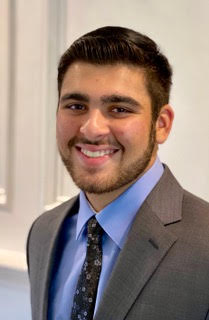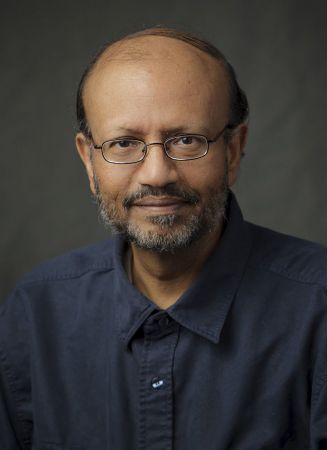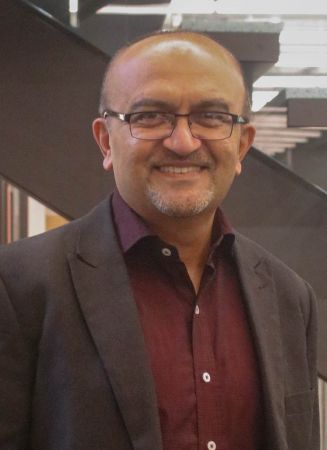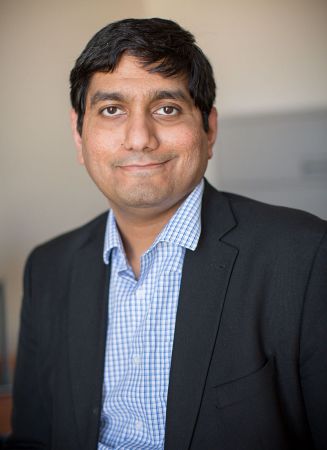The right opportunity at the right time can change everything. Just ask Wes Patel.
When Patel first came to Lehigh as a member of the Class of 2023, he was fairly certain he was taking the first step toward medical school. His dad was a doctor, and Patel had spent part of his senior year of high school shadowing physicians in the anesthesiology department of a local hospital, watching them put patients to sleep and monitoring them throughout surgeries of all types. The field seemed like a perfect fit for him. It blended medicine with his growing fascination with chemistry.
“I got to see just how big of a role chemistry plays in surgery,” he says, “and how the interactions of seemingly simple chemicals had huge impacts on pain reduction.”
With some guidance from his parents, he chose to major in chemical engineering. The field could give him an edge with getting into med school, they told him, but it could also set him up for an alternative career in case he changed his mind about practicing medicine.
Patel did eventually change his mind. At first, it was for logistical reasons. He knew he’d be short a few pre-med requirements, so he decided to devote himself entirely to his major, thinking he could pick up those remaining credits in a semester or two after graduation. After that decision was made in his sophomore year, he felt a bit of pressure to find a summer internship.
“It was during COVID, and a lot of companies weren’t hiring,” he says. “I think I applied to over 100 internships, and I came up pretty much empty-handed. But then I took a look at the research side of things.”
He’d never really considered doing research. But during the COVID lockdown, he’d been unexpectedly captivated by one of Manoj Chaudhury’s classes. Patel says that Chaudhury (Lehigh’s Franklin J. Howes Jr. Distinguished Professor of Chemical and Biomolecular Engineering) did experiments virtually for the students from the IMBT Unit Ops Laboratory on Mountaintop Campus.
“He would do these hands-on lectures with a flow through pipes experiment, and he provided us with many opportunities to explore fluid mechanics through computational modeling software,” says Patel. “I was engaged every day. It wasn’t your typical pencil-paper lecture.”
He eventually asked Chaudhury if he could work in his lab over the summer.
“He’s passionate about what he does, his approach is very creative, and he’s interesting to talk to, and so the research experience that summer was great,” says Patel. “I went to Whitaker Lab every day, and spent the whole day doing research. That experience first got me thinking about doing a PhD.”
What made all those days at Whitaker so great was a combination of things—the enthusiasm and support of Chaudhury, and the opportunity to meaningfully contribute to impactful research. At the time, Chaudhury’s lab was researching spontaneous emulsification, and Patel studied the oil-water interface, and how water diffuses through it. His hard work that summer paid off with his first ever co-authorship on a published paper.
“That was just awesome. I never thought that would happen,” he says. “I got to see all the aspects of what goes into writing a paper, the experiments, the analysis, thinking about what it all really means, and writing it up in a way that accurately communicates the results. I had a lot of experience writing lab reports in class, but that experience allowed me to see how everything comes together on a deeper level, because you’re writing about something no one else has written about before.”
The idea of doing a PhD was in his head, but he felt like he hadn’t covered all his bases. So he applied for an internship the summer before his senior year at manufacturer Owens Corning in Ohio. And once again, he found himself in an unexpected position: working in digital analysis and coding. He didn’t have much coding experience, but he decided the opportunity was worth the discomfort. It would give him the chance to learn something new, and see what life was like in industry.
The summer experience morphed into a research opportunity after the company provided a grant to Lehigh to develop predictive modeling for their curing ovens. Patel worked with chemical and biomolecular engineering faculty members Mayuresh Kothare and Srinivas Rangarajan on that project through the Fall 2022 semester.
He’s now seen what doors a PhD can open in both academia and industry.
Patel also started a senior thesis last fall. Working with Chaudhury, he’s researching water purification, specifically, how to separate oil from water in a more sustainable way. The ultimate goal is to improve the function of the bilge water system in ships so that less oil from the system is released into the sea.
“I’m using organic polymers and trying to functionalize them in a way that captures oil emulsions,” says Patel. “The most exciting thing about this project is thinking down the line to the potential impact it could have, but on a day-to-day basis, I’m having fun working through the problems that are presented to me and developing unique solutions. I am also fascinated by the polymeric structures I am creating. They just look really cool. I take pictures of them every day.”
There is no question now as to Patel’s next step. He has been accepted into four PhD programs and is keeping his research focus broad, focusing on sustainability and innovation. He never saw it coming, but research speaks to him as strongly now as medical school once did. He loves the creativity of it and the freedom it allows to explore different approaches. He even loves what he learns from experiments that fail.
“Negative data is valuable,” he says. “It kind of tells you what’s not going on.”
He credits his professors—and especially Chaudhury—for making research accessible, exciting, and rewarding, and for helping him find his way toward a PhD. “Lots of conversations” about their work, their experiences, and their connections helped him see the value in graduate school, and how it would set him up to be an even stronger candidate for whatever he chooses to do afterward.
And if there’s one thing Patel has learned, it’s the value of being flexible and open-minded.
“I used to think there was only one path in engineering. You get an internship, then you get another internship, then you get a job, and work your way up the ladder,” he says. “It seemed like that’s the path most people took. But my research experiences opened my eyes to so many more opportunities and ways of working. I’m so happy things worked out the way they did.”




